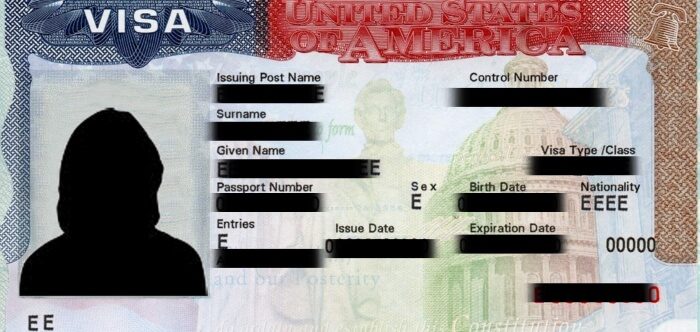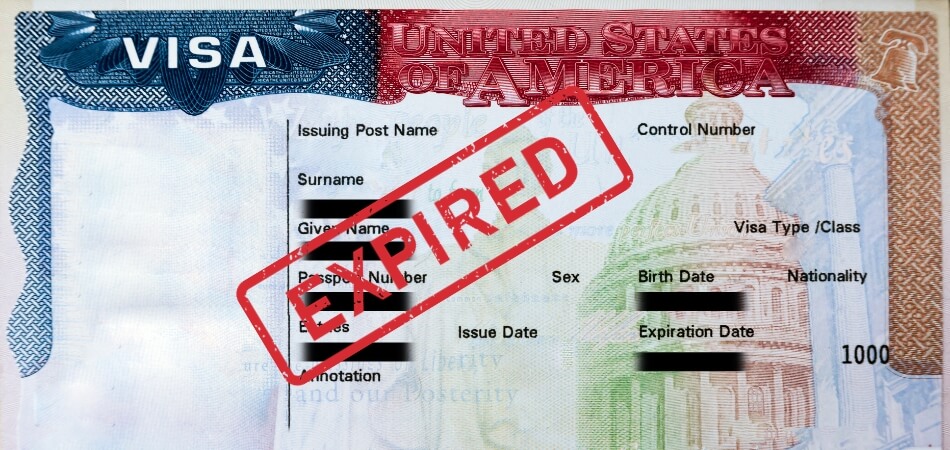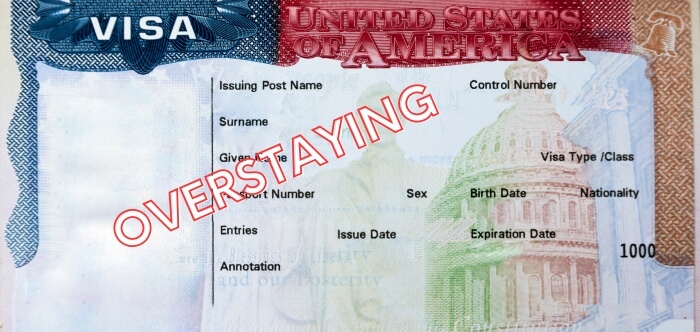Understanding the complexities of U.S. visas can be daunting, especially when considering the implications of a visa expiration. Once your visa expires, it’s crucial to understand the rules surrounding your stay in the United States. Many travelers find themselves asking, “How long can I stay in the USA after visa expires?” This question often leads to confusion and uncertainty.
When your visa expires, your legal stay is governed by the date on your I-94 form rather than the visa itself. For most visa types, overstaying can lead to serious punishments. For instance, with a B1/B2 visa, your authorized stay is typically up to six months. Exceeding this period can result in penalties, re-entry bans, or complications with future visa applications. It’s essential to keep track of your I-94 expiration date to avoid overstaying.
Are you curious about what happens if you overstay your visa? This article delves into the details of U.S. visa rules, outlining everything you need to know about extending your stay, potential risks, and the processes involved. Read on to ensure you’re fully informed and prepared for your travels.
Importance of Knowing USA Visa Rules
Traveling to the USA can be a thrilling adventure, but it requires careful planning. One critical step is understanding the USA visa rules, ensuring a smooth trip. Without this knowledge, travelers might face unexpected delays, denials, or even deportations upon arrival.

Being familiar with visa regulations also helps in choosing the right visa category. Different purposes like tourism, work, or study have distinct requirements. Securing the correct visa type ensures you’re legally protected and can fully enjoy or accomplish your trip’s purpose.
Furthermore, respecting visa rules improves international relations between countries. Following by these regulations, including understanding processes like changing tourist visa to permanent residency in USA, demonstrates respect for the host nation, creating trust and mutual understanding. Therefore, studying and following visa protocols is essential for a successful and hassle-free journey to the USA.
How Long Can I Stay in the USA After Visa Expires?
When staying in the USA, it’s important to know the rules about your visa expiration to avoid potential issues. The length of time you can stay is determined by several factors, and overstaying can lead to penalties. Below are key points to remember during your stay.
I-94 Form Governs Your Stay
Your legal stay in the USA is controlled by the date on your I-94 form, not the visa expiration. Typically, for a B1/B2 visa, this form allows a 6 month stay. It is essential to leave the U.S. on or before this date to avoid overstaying.
No Grace Period After Expiration
There is no grace period after your authorized stay ends. As soon as the I-94 date passes, your presence in the U.S. becomes unlawful. Even staying just one extra day after the expiration can result in future visa complications and penalties.
Extending Your Stay
If you need more time, you can apply for an extension before your I-94 expires. The extension must be filed while you are still within your authorized stay. Once approved, the extension could allow you to stay longer, but the request must be timely.
Short Stays After Expiration Can Still Affect
Even a short overstay of less than 180 days can affect future visa applications. While staying a few days beyond the I-94 might not cause immediate bans, it will appear in your immigration record, making future visa approvals more difficult, especially when seeking an extended stay on a B1/B2 visa.
Unlawful Presence Over 180 Days
If you overstay for more than 180 days but less than one year, you could face a 3-year re-entry ban. Overstaying for more than one year results in a 10-year ban. This unlawful presence begins the day after your I-94 expires, so careful planning is essential.
Voluntary Departure to Avoid Penalties
A voluntary departure before your authorized stay ends can help you avoid serious penalties. This option allows you to leave the U.S. without negative immigration consequences. Leaving on time or with an approved extension is key to staying compliant with U.S. visa laws.
The key to extending your authorized stay is understanding your options. Always leave before your I-94 expires or apply for an extension to avoid overstaying and future complications.
Types of USA Visas and their Grace Period
A visa allows foreign nationals to enter the U.S. for a wide range of reasons. Each visa type comes with its own rules and regulations, including specific grace periods that dictate how long you can legally stay in the country after the visa expires. Understanding these grace periods is essential for a smooth and compliant stay in the USA.
F-1 (Student Visa)
International students attending U.S. colleges and universities are qualified for an F-1 visa. Upon completion of studies, students receive a 60-day grace period. This time allows them to prepare for departure or transition to another status. They must refrain from unauthorized work during this period.
B-1/B-2 (Tourist & Business Visa)
Designed for short-term visitors, B-1/B-2 visas have specific durations. Surprisingly, these visas typically don’t include a grace period. Overstaying can result in future travel restrictions or potential deportation.
H-1B (Specialty Occupation Workers)
This visa allows professionals to work in specialized roles. After job termination, H-1B visa holders get a 60-day grace period or until the visa’s end date, whichever comes first. They can use this time to seek a new employer or change their visa status.
L-1 (Intracompany Transferee)
For managers or specialized employees transferred to a U.S. office, the L-1 visa is pertinent. It provides a 60-day grace period post-employment, allowing time for potential status changes or orderly departure.
J-1 (Exchange Visitors)
The J-1 visa covers various exchange visitor programs. Following the program’s end, there’s a 30-day “grace” period for travel or departure preparations. It’s vital to understand specific program conditions to ensure compliance.
K-1 (Fiance Visa)
Designed for foreign fiancés of U.S. citizens, the K-1 visa facilitates marriage in the U.S. Once married, beneficiaries should apply for adjustment of status. No specific grace period exists, but timely status adjustment is crucial.
Planning and a smooth U.S. stay are ensured by being aware of the complications of each type of visa. Understanding grace periods reduces unintentional overstays and protects one’s reputation when traveling.
How to Extend Your Stay After Your USA Visa Expires?
If you find yourself in the United States with an expired visa but wish to extend your stay, there are legal avenues available. Here’s a step-by-step guide on how to extend your stay in the USA after your visa has expired.
Step-1. Determine Your Eligibility
Before taking any action, assess if you’re eligible for an extension. Generally, you must have maintained your current visa status and not committed any crimes. Ensure that you’ve followed all visa conditions during your stay.
Step-2. Gather Necessary Documentation
Collate all the essential documents, including a copy of your passport, current visa, I-94 form, and proof of financial means. This documentation shows you’ve maintained status and can support yourself during the extended stay. If you’re attending a conference in USA with invitation letter, include it as proof of the reason for your extended stay.
Step-3. Complete Form I-539
Fill out the Application to Extend/Change Nonimmigrant Status, known as Form I-539. While filling, be thorough, ensuring every detail matches your supporting documents. Cross-check to avoid discrepancies, which can lead to application delays or denials.
Step-4. Write a Convincing Letter
Along with the form, a detailed letter explaining the reasons for your extension is essential. Be specific about your circumstances, whether it’s a family event, medical emergency, or other valid reasons. A clear, concise letter helps strengthen your application.
Step-5. Pay the Required Fee
Visa extension requests come with associated fees. Check the latest fee structure on the USCIS website. Payment methods vary; ensure you choose an accepted mode, and always keep a receipt as proof of payment.
Step-6. Submit Your Application Before Expiry
To avoid unintentional overstays, submit your extension application well before your current visa expires. This proactive approach will ensure that your application has ample processing time.
Step-7. Await the USCIS Decision
Once submitted, wait for the U.S. Citizenship and Immigration Services (USCIS) to review your application. Be prepared for additional documentation requests or interviews. Remember, approval is not guaranteed; always have a backup plan.
Staying proactive and informed about the visa extension process ensures a hassle-free experience. It’s crucial to respect visa norms, making extensions the right way to extend your U.S. adventure.
Risks of Overstaying After USA Visa Expires
Overstaying a U.S. visa can have serious fallout. It’s not just about exceeding a travel date; it affects your future travel and legal standing. Here are some key risks to consider.
- Deportation Risks: If you overstay your visa, you will be deported immediately. Once deported, re-entry to the U.S. becomes significantly challenging.
- Re-entry Bans: Extended overstays can result in bans. Depending on the length of the overstay, bans can last from three years to permanently.
- Future Visa Complications: Past overstays can affect future visa applications. Consular officers may perceive you as a potential immigration risk.
- Loss of Visa Waiver Benefits: Overstaying might forfeit your eligibility for the Visa Waiver Program. This complicates future travels to the U.S.
- Detainment Possibility: Immigration officers can detain visa violators. Being detained for visa issues is distressing and impacts travel records.
- Impact on Citizenship Applications: Any future U.S. citizenship or residency applications can be affected by overstays. It portrays a disregard for immigration rules.
Understanding these risks highlights the importance of keeping to visa durations. It’s always wise to stay within legal bounds to ensure smooth travel experiences.
Frequently Asked Questions
It can be challenging to stay up-to-date with visa regulations, particularly in the weeks following the expiration of a visa. This FAQ section aims to clarify common questions regarding what happens after your visa expires and the actions you should consider.
What Should I Do Immediately After My Visa Expires?
As soon as your visa expires, you need to take action as soon as possible. You should prepare to leave the United States to avoid overstaying, which can lead to penalties. Ensure you have travel arrangements in place to exit the country promptly.
Can I Apply for a Visa While in the USA After Expiration?
Applying for a new visa while in the U.S. after your current visa has expired is generally not advisable. You may face difficulties, as being in the country unlawfully can negatively impact your eligibility for future visas and your immigration record.
What Are the Penalties for Overstaying My Visa?
There are several consequences that could result from an overstay if you do not leave the U.S. as soon as possible. You may be prohibited from reentering the U.S. for several years if you did not leave the U.S. You may also be ineligible for other immigration benefits if you leave early.
How Can I Avoid Overstaying My Visa?
You should keep track of your I-94 expiration date and plan your departure accordingly to avoid overstaying. If you need to extend your stay, make sure that you apply for an extension before your authorized stay ends in order to avoid breaking immigration laws.
What Should I Know About Future Travel After an Overstay?
It is vital to be aware of your immigration history when planning future trips to the United States because an overstay may make future travel difficult. You may be subject to increased scrutiny during visa applications, and overstays in the past may lead to denials. It is important to know your immigration history before planning future trips.
End Note
Having a thorough understanding of the rules surrounding your visa expiration is essential to a smooth U.S. visit. Knowing that your stay is determined by your I-94 form rather than the visa itself is crucial. Therefore, it’s important to manage your departure before overstaying. So, when considering “How long can I stay in the USA after visa expires?” the answer is to leave by the date on your I-94 form to avoid penalties.
Stay informed about the specific rules that apply to your situation as you plan your stay and keep track of your visa dates. Be proactive in understanding your legal options in case you need more time. Best wishes for your travels, and have a pleasant and fulfilling stay in the U.S.







